Strategic Project Management
When Business Intelligence Meets Emotional Intelligence

✔︎ In Person

Project management is the practice of applying knowledge, skills, tools, and techniques to complete tasks and deliver value while achieving a desired outcome.
As project management has evolved into a distinct profession driving the modern “Project Economy,” this course will highlight how it serves as a strategic organizational competence essential for driving change and achieving successful outcomes in both internal change initiatives and external contract projects.
Skills you’ll gain:
✔︎ Communication ✔︎ Management ✔︎ Strategic Planning
- 8 Reasons Projects Fail
- The Triple Constraint Theory
- The role of the Project Manager
- 8 Behaviours of Emotionally Intelligent Leaders
- Daniel Goleman’s 4 Quadrants of Emotional Intelligence
- Understanding our Stakeholders
- The 5 Dysfunctions of a Team
- Debono’s 6 Thinking Hats
- The Lewis Model
- 6 Performance Drivers of Effective Teams
- Eisenhower’s Matrix
- The RACI Matrix
- SWOT vs SOAR
- Pestel Analys
- Appreciative Enquiry
- The Kubler Ross Transitional Curve
- Lean Six Sigma
- Agile
- Introduction to Project Management and What has Emotional Intelligence got to do with Project Management?
- The 8 Reasons Projects Fail
- Lack of Experience by Project Managers
- Lack of Proper Planning
- Unclear Goals and Objectives
- Improper Scope Definition
- Lack of Follow-up & Monitoring
- No Risk Management / Analysis
- Unsupported Project Culture
- Unrealistic Expectations
The cost will be £x,xxx.xx + VAT for x days of training, for up to xx delegates – including all preparations, trainer’s expenses, and materials.
Strategic Project Management
Project management is the practice of applying knowledge, skills, tools, and techniques to complete tasks and deliver value while achieving a desired outcome.
In this course, we will break down the fundamental concepts of project management – whether it be software development, building construction, disaster relief, or sales expansion – we will explore the key aspects of project management, including the distinct phases each project goes through from initiation to closure, and the critical role of project managers in ensuring success by motivating teams and meeting project needs.
As project management has evolved into a distinct profession driving the modern “Project Economy,” this course will highlight how it serves as a strategic organizational competence essential for driving change and achieving successful outcomes in both internal change initiatives and external contract projects.
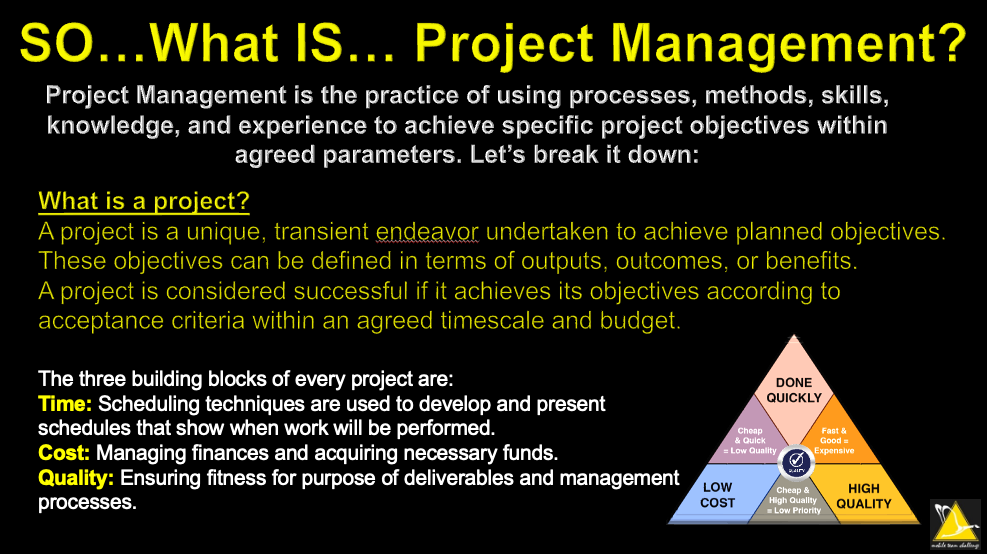
Projects go 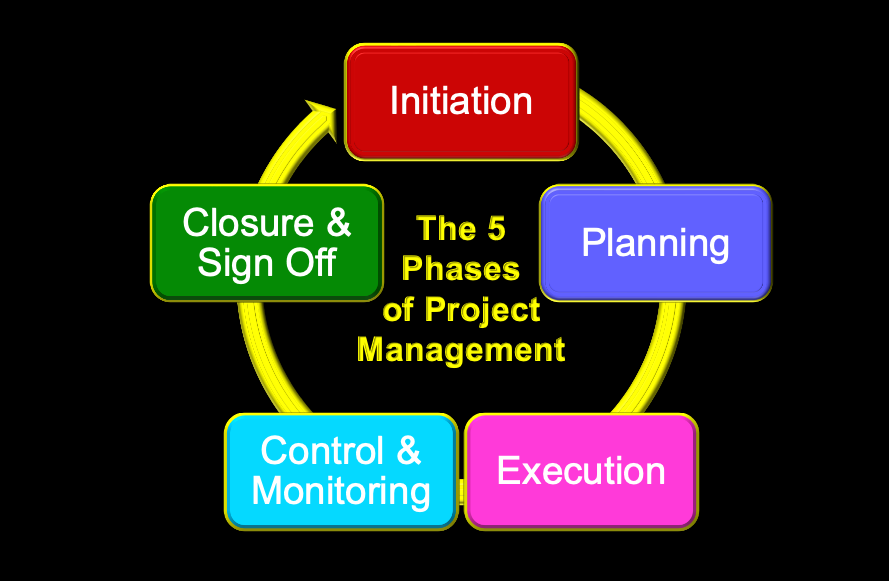 through predictable cycles including 5 phases. Navigating these phases and knowing what to consider at every step is key to a project succeeding.
through predictable cycles including 5 phases. Navigating these phases and knowing what to consider at every step is key to a project succeeding.
Still… according to KPMG, 30% of projects FAIL!
But why do Projects usually fail?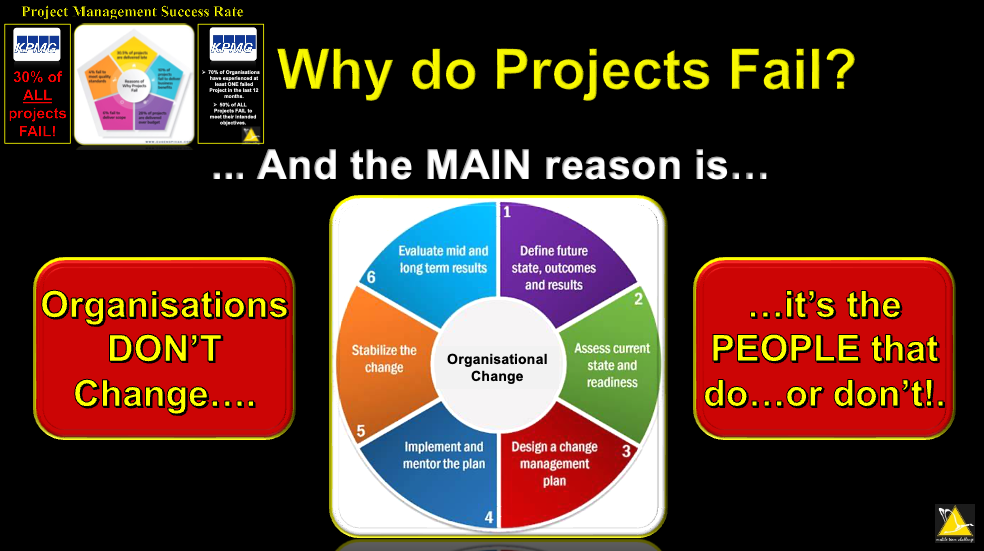
- Lack of Experience by Project Managers
- Lack of Proper Planning
- Unclear Goals and Objectives
- Improper Scope Definition
- Lack of Follow-up & Monitoring
- No Risk Management / Analysis
- Unsupported Project Culture
- Unrealistic Expectations
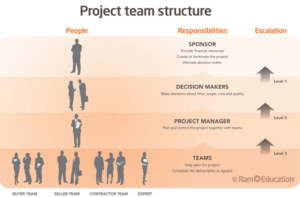 Participants will gain insights into various strategic tools and methodologies, including the RACI Matrix for clarifying roles and responsibilities, SWOT vs. SOAR for strategic planning, and Lean Six Sigma
Participants will gain insights into various strategic tools and methodologies, including the RACI Matrix for clarifying roles and responsibilities, SWOT vs. SOAR for strategic planning, and Lean Six Sigma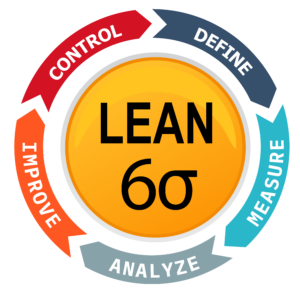 and Agile for process improvement. The course also covers the Kubler Ross Transitional Curve for managing change, Debono’s 6 Thinking Hats for creative problem-solving, and the Lewis Model for understanding cultural differences. Through practical applications of Eisenhower’s Matrix for prioritizing tasks and Appreciative Inquiry for fostering a positive organizational culture, participants will be equipped to lead their projects to success.
and Agile for process improvement. The course also covers the Kubler Ross Transitional Curve for managing change, Debono’s 6 Thinking Hats for creative problem-solving, and the Lewis Model for understanding cultural differences. Through practical applications of Eisenhower’s Matrix for prioritizing tasks and Appreciative Inquiry for fostering a positive organizational culture, participants will be equipped to lead their projects to success.
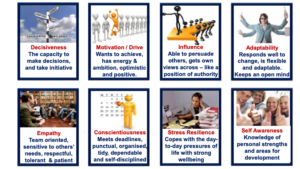 In this comprehensive course, participants will delve into the core aspects of project management, exploring the reasons projects often fail and how to mitigate these risks.
In this comprehensive course, participants will delve into the core aspects of project management, exploring the reasons projects often fail and how to mitigate these risks. 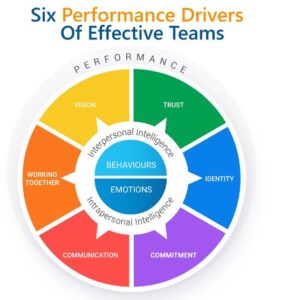 They will learn about the Triple Constraint Theory, which balances scope, time, and cost, and the crucial role of the Project Manager in steering projects towards success. The course will emphasize the importance of Emotional Intelligence in project management, introducing Daniel Goleman’s 4 Quadrants of Emotional Intelligence and the 8 Behaviours of Emotionally Intelligent Leaders, which are critical for effective stakeholder management and team collaboration.
They will learn about the Triple Constraint Theory, which balances scope, time, and cost, and the crucial role of the Project Manager in steering projects towards success. The course will emphasize the importance of Emotional Intelligence in project management, introducing Daniel Goleman’s 4 Quadrants of Emotional Intelligence and the 8 Behaviours of Emotionally Intelligent Leaders, which are critical for effective stakeholder management and team collaboration.

In this course Delegates will: